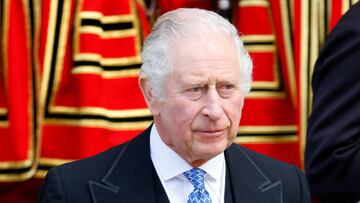ROYAL FAMILY
King Charles supports study into the Royal Family’s colonial past
Buckingham Palace is working with an independent study on its colonial past.

King Charles has given the go-ahead to an independent study that seeks to investigate the Royal Family’s colonial past, particularly its links to the transatlantic slave trade in the 17th and 18th centuries.
Buckingham Palace has released a statement on the matter, saying that the study would be a joint effort by the University of Manchester and Historic Royal Palaces.
Opening up the royal archives for the study
“This is an issue that His Majesty takes profoundly seriously,” a Buckingham spokesperson told the Guardian. “As His Majesty told the Commonwealth heads of government reception in Rwanda last year: ‘I cannot describe the depths of my personal sorrow at the suffering of so many, as I continue to deepen my own understanding of slavery’s enduring impact.’
“That process has continued with vigor and determination since His Majesty’s accession,” the spokesperson continued. “Historic Royal Palaces is a partner in an independent research project, which began in October last year, that is exploring, among other issues, the links between the British monarchy and the transatlantic slave trade during the late 17th and 18th centuries.”
The spokesperson added: “As part of that drive, the royal household is supporting this research through access to the royal collection and the royal archives.”
Along with uncovering the extent the royal family was connected to the transatlantic slave trade, other issues, not specified, are also being explored.
The palace’s statement on the matter comes after the Guardian published a previously unseen document discovered by historian Dr. Brooke, showing the transfer of £1,000 of shares in the slave-trading Royal African Company to King William III, from Edward Colston. The document is dated 1689.
The Royal Family’s increasing disfavor with former colonies
Last year, when Prince William and his wife Kate Middleton began a tour in the Caribbean, visiting Belize, Jamaica, and the Bahamas, they were met with calls to apologize for slavery, and for reparations to be made. Their tour in Belize to visit the Akte ‘il Ha cacao farm in the Maya Mountains was canceled, following opposition from residents.
The tour, originally meant to celebrate Queen Elizabeth’s platinum jubilee in honor of her 70 years as monarch, also focused on Jamaica’s increasing desire to become a republic.
If Jamaica decides to go ahead, they would be following in the footsteps of the fellow Caribbean nation, Barbados, which welcomed its first president in November 2021.
“From the darkest days of our past, and the appalling atrocity of slavery, which forever stains our history, the people of this island forged their path with extraordinary fortitude,” said then-Prince Charles on the day that Barbados transitioned to a republic.
“Emancipation, self-government and Independence were your way-points. Freedom, justice and self-determination have been your guides. Your long journey has brought you to this moment, not as your destination, but as a vantage point from which to survey a new horizon,” he added.






